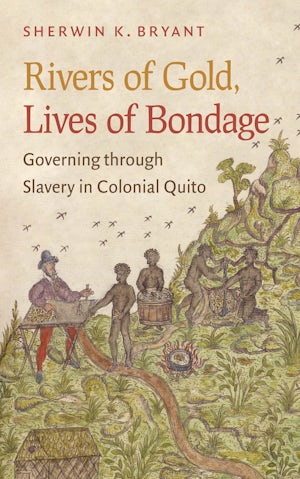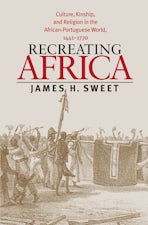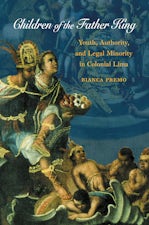Rivers of Gold, Lives of Bondage
Governing through Slavery in Colonial Quito
By Sherwin K. Bryant
264 pp., 6.125 x 9.25, 5 halftones, 2 maps, 4 tables, notes, bibl., index
-
Paperback ISBN: 978-1-4696-4566-7
Published: August 2018 -
Hardcover ISBN: 978-1-4696-0772-6
Published: November 2014 -
E-book EPUB ISBN: 978-1-4696-0773-3
Published: November 2014 -
E-book PDF ISBN: 979-8-8908-4376-0
Published: November 2014
Buy this Book
- Paperback $29.95
- Hardcover $39.95
- E-Book $19.99
For Professors:
Free E-Exam Copies
In Cartagena, officials branded African captives with the royal insignia and gave them a Catholic baptism, marking slaves as projections of royal authority and majesty. By licensing and governing Quito's slave trade, the crown claimed sovereignty over slavery, new territories, natural resources, and markets. By adjudicating slavery, royal authorities claimed to govern not only slaves but other colonial subjects as well. Expanding the diaspora paradigm beyond the Atlantic, Bryant's history of the Afro-Andes in the early modern world suggests new answers to the question, what is a slave?
About the Author
Sherwin K. Bryant is associate professor of African American studies and history at Northwestern University.
For more information about Sherwin K. Bryant, visit
the
Author
Page.
Reviews
“A well-researched and eloquently written contribution to research on the Audiencia of Quito.”--American Historical Review
“Reasserts through a varied and rich set of lenses how colonization, enslavement and race governance was enacted through royal impositions.”--Slavery & Abolition
“Deeply researched and carefully structured.”--Journal of Historical Geography
“Enriched by solid archival research and interdisciplinary orientation that has resulted in deeper understanding of Spanish colonial legal culture. . . . An invaluable research tool to scholars working on the history of slavery, African diaspora, Afro-Creole studies, and Colonial Latin American studies.”--Sixteenth Century Journal
“[Bryant’s] exhaustive archival work yields new insights into the periodization of what he describes as the ‘black radical discourse’ of slaves”--Colonial Latin American Historical Review
“Offers a new perspective on early modern empire making. . . . A welcome addition that contributes to scholarship on slavery, imperial governance, and legal cultures.”--Hispanic American Historical Review




